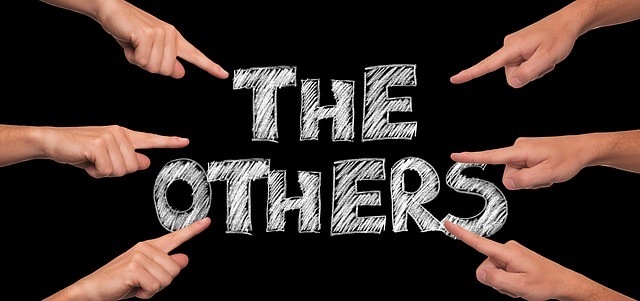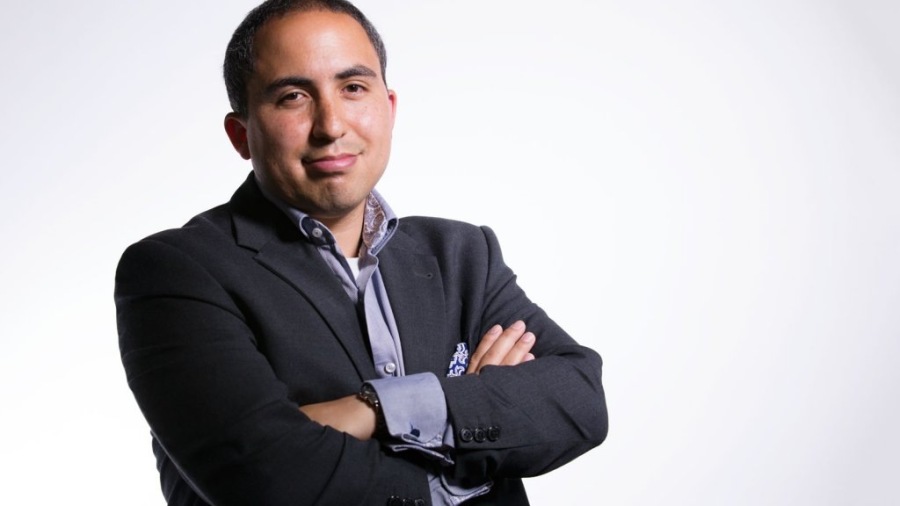Why We Habitually Blame and What it Often Costs Us

Blame can be an precise, accurate assessment. However, what about when it becomes a blind spot reactionary habit and credible evidence is missing? Emotional reasoning can be a plague and it’s more common than understood.
It’s then that one can acquire a label and reputation of looking to constantly find fault, assign it and deflect from what is evident. This can cause negativity in how we’re perceived, harm interactions with other people and be a catalyst for being tuned out, looked down upon and not being seen as credible and trustworthy.
So understanding why we can become habitual in assigning blame is important to understand.
It might not seem at times like it’s emotional overwhelm yet that’s what is transpiring. Our minds are struggling with processing information successfully and blame becomes a way to relieve that stress and make sense of an experience or situation.
There are five reasons we travel this path, says Susan Krauss Whitbourne, Ph.D. and a professor emerita of Psychological and Brain Sciences at the University of Massachusetts Amherst.
She writes in Psychology Today that blame is an excellent defense mechanism because it allows us to protect our self esteem. We can judge and find fault to avoid owning and examining our own challenges or contribution to a situation.
We also can develop a habit of resorting to attacking others when we’re stressed, hurt, angry or feeling attacked. We want to transfer that uncomfortable or painful feeling elsewhere.
Kraus Whitbourne points out that we’re not always as perceptive and smart as we feel we are when we “see” other people’s motivations for their behavior or our own. We have a tendency, she writes, “to make illogical judgments,” and maybe just as important if not more so, “and we’re just as bad at making judgments involving the blameworthiness of actions in terms of intent versus outcome.”
We are emotional beings thus while we don’t like to admit it and often deny it, we are illogical more often than we believe and are convinced. That is a blind spot of intellectual dishonesty that negatively affects people’s minds, behavior, interactions and reputation. In my experiences, the more educated and intelligent the person, the more likely this particular blind spot, overconfidence, arrogance and behavior.
The intent versus outcome variable is a significant problem. While the impact of an action should inspire empathy and compassion, intent is not often considered or respected as factual, creating more conflicts and negative reactions or responses.
It’s not surprise that assigning blame to other people helps us emotionally and psychologically to avoid responsibility. It also might prove beneficial to us in a myriad of ways, driving the impulse and commitment to doing so.
Then, of course, there’s the not-so-dirty secret of humanity: people lie, a lot. While it’s easy to generalize and say this group or that group always lie, the truth is lying is not group specific. We’re included.
Blame, as a habit, can become a self-defeating and toxic mindset, which can and does damage or ruin professional and personal relationships, reputation, happiness and health. It blocks opportunities, conflict resolution and healing. It slows or prevents development of a valuable, critical life skill — resilience.
“Each moment we blame others for how we manage anger, we make it that much more difficult to examine the ways in which we get in our own way. And, in the process, we move further away from actually satisfying our key desires. Each time we blame others for our anger miss out on an opportunity for personal growth,” Bernard Golden, Ph.D., the founder of Anger Management Education writes in his Psychology Today article 7 Consequences of Blaming Others for How We Manager Anger.
Personal growth might seem like a fluffy concept or not a need yet without it, we assume more problems in our lives than what we will want to attract and have to deal with and solve. Without personal growth we are lesser versions of ourselves and at greater risk of serious problems ending up on our figurative doorstep.
What isn’t realized about the weapon that habitual blame is, is that it leads to more blaming, Golden has found. In his words, blaming leads to blaming.”
He explains the clear findings of science behind it: “Brain research increasingly emphasizes that the more frequently we have certain thoughts and behaviors, the more strongly they become embedded in the neuronal pathways of our brain. Consequently, regarding anger-provoking situations for example, the more frequently we blame others for how we react, the more likely we will continue to do so. And the more we respond aggressively, the more such aggression becomes the ‘go-to’ reaction.”
So when blame is a habit, it gets reinforced biologically, psychologically and habitually. The habit then owns us, not vice versa. We are its puppet.
This doesn’t mean we can’t rewire our thinking, judgment, decision-making and behavior. We can. We should. We really should.
All of us are leaders in some aspect of our lives, personally and professionally and that’s important to remember because the best ones know something that many of us have yet to learn.
“Great leaders don’t rush to blame. They instinctively look for solutions,” Nina Easton, an author, writer and co-founder of SellersEaston.
Blame feels natural. It can relieve negative emotions. It rarely problem solves or at least by itself. Blame does not often attract opportunities in our lives or resolve what causes us distress and pain. Blaming becomes a reputation that we would not ideally want to construct for ourselves.
There are smarter, more effective, less costly ways to process emotions, apply healthy stress management and morally solve what causes pain and anger.
Michael Toebe writes Red Diamonds Essays, the Red Diamonds Newsletter and Red Diamonds Features, all on Medium. He is a specialist for reputation, professional relationships communication and wiser crisis management.
This article was first published at Red Diamonds Essays, on the Medium platform, on September 3, 2020.
Articles from Michael Toebe
View blog
“Some people lean in when their friends take heat, some people lean away. · “I decided I wanted to b ...

Humanity and relationship-focused behavior in business and the workplace can pay dividends, from hig ...

"What do you do when someone gives you critical feedback? · "It feels like someone is telling you: Y ...
You may be interested in these jobs
-
Miembro del Equipo de Restaurante
Found in: Lensa US 4 C2 - 1 day ago
Noodles & Company Herndon, United StatesResumen: · Noodles & Company es ms que comida rpida: somos un restaurante informal rpido con ingredientes reales (di adis a la comida grasosa y hola a los ingredientes frescos). Estamos contratando de inmediato a los miembros del equipo del restaurante para que se unan a nosotro ...
-
ACCS Awake Overnight Residential Counselor
Found in: One Red Cent US C2 - 4 days ago
Vinfen Jamaica Plain, United StatesSchedule: Mon-Thu, 11pm-9am · Salary: $17.00 / hour · As an ACCS Awake Overnight Residential Counselor in a Residential Group Living Environment, (GLE), you will provide direct support to people with psychiatric conditions in a residential Group Living Environment designed to ass ...
-

Principal Business Systems Analyst
Found in: Lensa US 4 C2 - 16 hours ago
PSEG Bethpage, United States**Requisition** : 78051 · **PSEG Company:** PSEG Long Island · **Salary Range** : $ 101,600 - $ 160,900 · **Incentive** : PIP 15% · **Work Location Category** : Remote Local · PSEG operates under a Flexible Work Model where flexible work is offered when job requirements allow. In ...


Comments